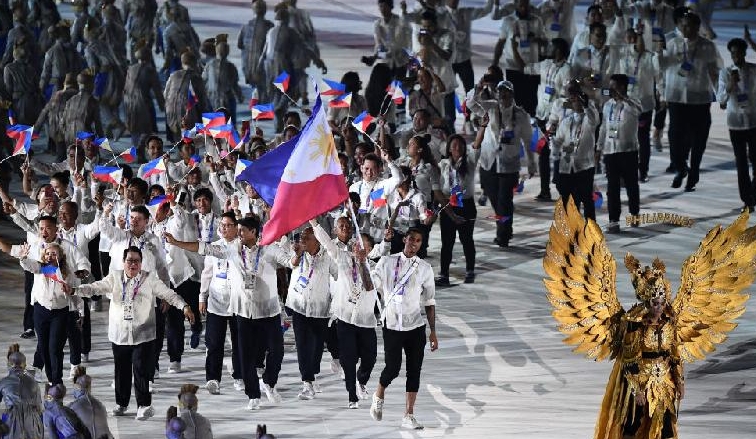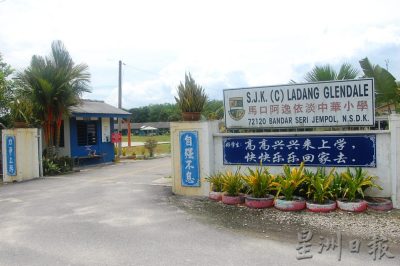
By Ravindran Raman Kutty
As a sports enthusiast, I have been following the Sea Games from the 80's as I literally grew up on it.
Kuala Lumpur hosted the Sea games six times. The 2019 Southeast Asian Games, officially known as the 30th Southeast Asian Games or 2019 SEA Games, a biennial regional multi-sport event, was held in the Philippines from 30 November to 11 December 2019.
I was watching some of the highlights and have a question to ask our organisers, i.e. Asean and the respective ten member countries. Why isn't Asean doing well in the Olympics? How come Asean has only produced 95 Olympics medals, out of which only 15gold, 7 by Thailand, 5 by Indonesia, 2 by Vietnam and 1 by Singapore. Where are we going wrong and why? We have been organising SEAP games or SEA games since 1959, and we are still struggling, why?
The establishment of an Asean sectoral Body on Sports was first proposed at the 16th Asean Summit in Hanoi, Vietnam in April 2010 to promote more active cooperation in sports within Asean.
Having glanced through the document, the missing part of the document is the Key Performance Indicator (KPI) to measure the success of this body.
I am not sure if there is a dedicated body in Asean to focus on Sports or it is carried out by the Asean Secretariat? I wonder if the secretariat besides having regular meetings have ever thought about bringing greater participation in the Olympics, raising the bar beyond the SEA games?
I am also puzzled to note that successful players like Datuk Lee Chong Wei, Datuk Nicol David and Joseph Schooling of Singapore and many other Asean Olympic gold medalists have never participated in SEA games, why?
A former senior editor of an English daily quipped that the SEA games is a village sports. I don't think he was uncouth but wonder if breakdancing was an event in the games (in the recent SEA games) and kicking shuttlecocks in 2003 Vietnam, he is right about his remarks. While it is good to add games that are popular locally, I think it is equally important to add value to existing sports.
Asean has a lot to do to improve sports at large. There is a need for honest-to-greatness reforms of the role all the ten member governments in sports. There is a dire need for the ministry of education, the local governments and the respective sports associations which must take a more active part in the promotion of sports.
Schools across Asean should introduce children to a wider spectrum of sports. Local governments with the support of sports associations should establish leagues for various sports to foster community and competitive spirit. These two departments should support the holding of sports competitions nationwide.
There is also a need for reforms to address the elephant in the room where the governance of sports federations to shield them from politics, unproductive bickering and incompetence is imperative if we are serious about seeing positive results. Royalties, politicians and all non- sports related personnel must not be allowed to hold key positions in sports associations. Only players, athletes and sports science graduates or specialists with the right qualifications should be allowed to be office bearers of sports associations.
It is also important for Malaysia and also most other Asean nations to face reality and focus on their energy and resources towards sports that will provide the best possible opportunity for us to nick that ever-elusive Olympic Gold such as badminton and hockey. Instead, every Asean nation seem to be plugging away at their national football team with hope against hope just to qualify for the games, where the last time we achieved an Olympic qualification was nearly 40 years ago! Maybe it is time we wake up from our daydream and accept the fact that we are meant to be great but maybe not in football. In due time we may be a global powerhouse in the game, but we must be practical and not sideline less 'popular' sports that in reality, can bring glory to our nation, i.e. hockey, weightlifting, etc.
All talented and potential sportsmen and sportswomen who are either studying or living abroad should be roped in for participation in all international games especially the Olympic Games. These players who are abroad must be identified by the Ministry of Foreign Affairs and the Sports Ministry officials. They must be kept a close watch as to ensure their talents are used for the gain of the nation.
The greater need for public and private cooperation to garner greater financial resources to support a decent representation at the Games, is also very critical. The respective National Committees should be more proactive in getting government support, especially on Olympics years, given that we should send athletes not only to win medals but also to obtain training for future Games. There are many corporations who are willing to support the sports associations, but these support and cooperation between the corporations and the organisations must be professionally managed, especially in managing their account books.
It seems logical that we continue to focus on the sports where we and our fellow Asean members have performed well at the Olympics and other international competitions. We should focus to participate in all water and beach events like swimming, diving, sailing, beach volleyball and field and track events. Malaysia is great in hockey, badminton, cycling, likewise Singapore in swimming, Indonesia in badminton, weightlifting, who has collected 32 medals in Olympics with 7 gold, 13 silver and 12 bronze a total of 19 medals for badminton and 12 medals in weightlifting and 1 in archery. Thailand has collected 33 medals with 9 gold, 8 Silver and Bronze 16, in weightlifting, boxing and taekwondo.
There is no shortage of bright ideas being proposed or floated to improve the sorry state of sports in almost every country in Asean. Serious consideration must be given to the establishment of a national Sports Academies like in Malaysia and Singapore. This can nurture and train promising athletes who can one day compete in international competitions, including the Olympics. Sports academies would also bring about greater and more holistic athletes who are acclimatised for all seasons to compete in international meets, especially Olympics.
The government should explore the inclusion in its cultural exchange programs of exchanges not only of coaches but also of athletes to superior training facilities abroad. Managers of sports organizations should also be included to enable them to study best practices abroad. The sports delegation must comprise of players and coaches and not many officials.
No Asean country has ever made it to the level of our Asian country neighbours like Japan, South Korea and China. These Asian tigers are roaring with fire while excelling in every sector of business, service or innovation.
Sports is often developed with children playing in parks, fields, or even open roads. Studies shows that extreme daytime outdoor temperature and excessive humidity in a South East Asia country has a negative impact on its success however indoor stadiums and well-maintained playgrounds can certainly draw better results challenging the existing weather conditions. This will be a great factor for all sports development builders to consider when they are planning play facilities for the urban and rural parts of Asean countries.
Economic development of a country contributes directly to the development of sports. In most countries Singapore, Thailand, Indonesia and Malaysia there is a large number of sports arenas, stadiums, swimming pools and indoor stadiums. This may have an impact too. But this is not the sole criteria too.
There must also be strong government push towards sports development. Sports should start from kindergarten and all the way to university. Malaysia is quite organized in this area, but there is a serious concern of the fast vanishing football fields in most of the urban schools. School fields has been reduced in size catering for other buildings, which is sad sight from the lenses of a sportsman.
A friend of mind, while having a teh-tarik, suddenly went berserk when talking about sports development in Malaysia. He was proudly saying that his daughter and son are now playing cricket and hockey for our country and challenged me to ask what games my children play. He went on saying that he forced his children to play these games rather than just staying indoors. This example alludes to the fact that every parent has a role in building sports. Sports cannot be responsibility of any government, but every parent has a moral responsibility in making champions. The Asean parents too have a great responsibility in creating champions, who can then bring more trophies.
Asean, while enjoying the benefits of a great organization of 10 nations, should seriously ponder in ways and means to excel in sports. Sports brings people and nation together. Sports has a spongy effect. It glues differences and makes them as one. Asean should seriously embark on producing Olympic medals, rather than lamely attempting to settle the long ongoing issue of haze. If the same effort, money and time wasted on haze were to be spent on Asean's future as a sports power house, we would have made it better and greater.
Asean is just not a bilateral our multilateral meeting organizer. It has to move forward looking into innovative ways to bring the Asean community to greater heights and one of the easiest ways would be focusing on developing sports, with a definitive KPI for every nation including those that have never won a single medal like Brunei, Myanmar and Laos to win medals in the coming Olympics, though the next Olympics in Japan is too close. Asean should appoint a sport think tank and study ways and means to kick -off a program that will produce sportsman and sportswomen who will excel and take our 10 member nations to the Olympics without fail in 2024 Olympics in Paris.
(Ravindran Raman Kutty is an active social worker.)
ADVERTISEMENT
ADVERTISEMENT


































